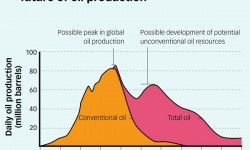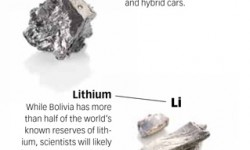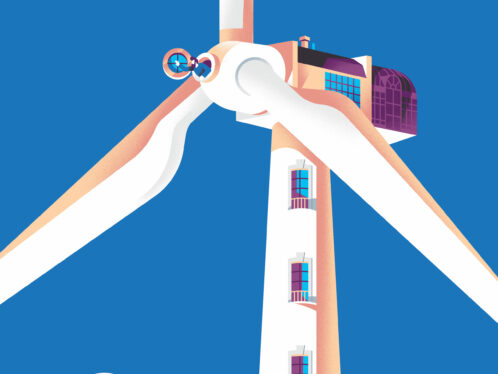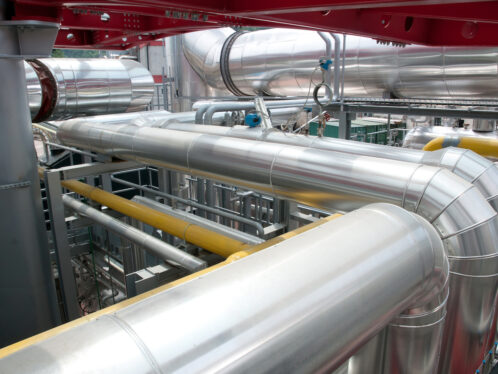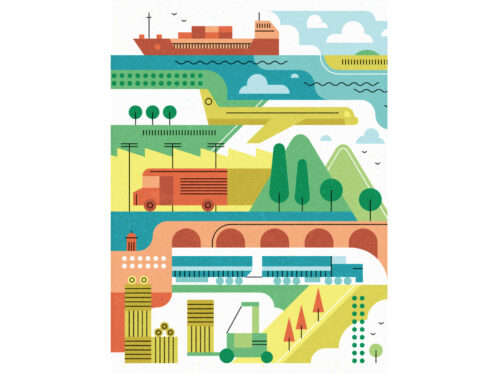What’s it worth?
OUTLOOK Discussions about the planet’s natural resources have shifted dramatically in the past few years, from questions of scarcity to debates about cost.
In the fall of 2012, before walking into his class on environmental science, Professor Stephen Porder tore up his introductory lecture from the year before. “The known basics are changing,” says Porder, who teaches at Brown University in the United States. “It’s rare for this kind of fundamental shift to occur.” Over the past two years, scientists have radically raised their estimates of global oil and natural gas reserves, thanks to new technologies such as tar-sands oil extraction and hydraulic fracturing (“fracking”) for natural gas. Respected authorities predicted the world would hit peak oil production between 2000 and 2020. “Now,” says Porder, “we’re not so sure.” The key question is no longer how much fossil fuel remains, Porder says, but instead: “How much are we willing to pay to extract it?” And that leads to a second question, he says: “How much are we willing to cook ourselves?” Already, the burning of fossil fuel since the start of the Industrial Revolution has increased carbon dioxide concentrations in the atmosphere by some 30 percent. Not long ago, policymakers focused their efforts on predicting when the world would run out of key resources — whether that meant oil, wood, gold, neodymium (found in iPhone earphones, for example) or lithium (used in rechargeable batteries). Now, Porder says, technology is complicating the idea of scarcity. “We’re worried that scarcity may lead us down a path of doing more and more damage, as we find new ways to extract resources that used to be fairly easy to obtain.” At the same time, he says, scarcity may have devastating consequences for vulnerable populations, those lacking basic resources such as fossil fuel and fertilizer. Manish Bapna at the World Resources Institute agrees with Porder’s analysis. “Technology may make certain resources more economically viable,” Bapna says, “but there are planetary boundaries, limits that tell us we can’t actually extract all those resources.” Bapna is executive vice-president of the institute, a global non-profit organization headquartered in Washington, D.C., that seeks to protect the environment while improving people’s lives. “Technological advances will allow us to extract more, but they often come at a cost, causing significant environmental impacts.” Moreover, the discovery of natural riches is a mixed blessing, Bapna says. Around the globe, countries routinely make discoveries that seem to promise great wealth — Mongolia has recently discovered gold and copper, Afghanistan has found oil, and Bolivia is mining its lithium. Too often, however, exploitation of natural resources fails to bring the desired prosperity, mainly due to poor governance. “We call it ‘the resource curse’,” Bapna says. “Countries that discover valuable resources often perform poorly in reducing poverty and improving living standards.” Another challenge in the natural resources arena involves balancing individual and national desires against global priorities. “Sixty percent of the world’s deforestation takes place in Brazil and Indonesia,” Bapna says. Agribusiness interests in those two countries continue to cut down rainforests in order to raise cash crops, a practice that may be good for the bottom line but is bad in terms of global climate change. As a policy matter, reducing deforestation is often more cost-effective than trying to shift to clean energy. Yet while economic incentives have been tried in rural Brazil and Indonesia, he says, “getting the system to work in practice on a large scale has proven elusive.” (One bright spot: Brazil has significantly reduced its rate of deforestation over the past five years.) Looking at the geopolitics of natural resources, Porder has his eye on Morocco because of its key role in fertilizer production. If the world has 10 billion people in 2050 who are wealthier and eat more meat, then food production will need to increase by 70 percent over today’s levels. “There isn’t anywhere left in the world to expand farmland that isn’t a desert or a rainforest,” Porder says. “And no one wants to cut down more rainforests.” So what options do we have? Really, the only possibility appears to be using farmland more intensively – and that will require huge amounts of fertilizer. The two most critical components of fertilizer are nitrogen and phosphorus. In fact, Porder says, “one could make the argument that modern human society is based on the alteration of three of the world’s cycles: carbon, nitrogen and phosphorus.” Nitrogen isn’t much of a problem. “We can get as much nitrogen out of the air as we want,” says Porder. “It’s essentially infinite.” Phosphorus, however, appears to be a limited resource. Two-thirds of the world’s deposits are found in one country: Morocco. On a hungry and overpopulated planet, will Morocco’s phosphorus be worth more than gold? Or will new technology alter our perspective once again? Time will tell. And Porder may have to rip up his lectures more than once before we learn the answers to these questions.


